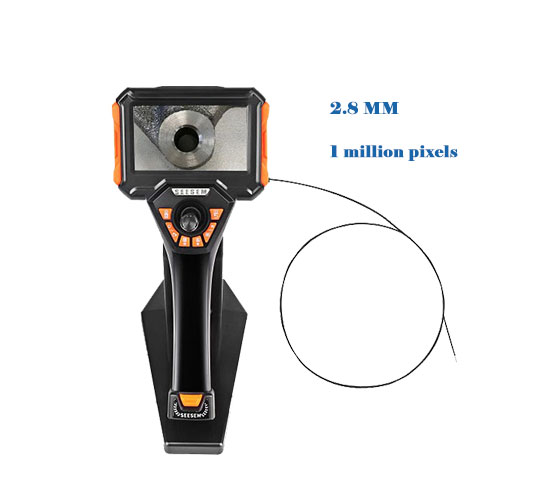Industrial videoscopes have become essential tools in various industries, allowing for efficient inspection and maintenance of equipment and structures. With a wide range of options available on the market, choosing the right industrial videoscope can be a daunting task. This article aims to provide a comprehensive guide to help you make an informed decision when selecting an industrial videoscope for your specific needs.
Image Quality:
One of the most critical factors to consider when choosing an industrial videoscope is image quality. Look for a videoscope with high-resolution capabilities and good color reproduction. A high-quality image will ensure clear visibility and accurate analysis of the inspection area.
Probe Size and Flexibility:
The probe size and flexibility are crucial factors that determine the videoscope’s accessibility to different inspection areas. Consider the diameter and length of the probe, ensuring it can reach the desired depth and navigate through tight spaces. Additionally, a flexible probe allows for easy maneuverability around obstacles, enhancing the scope’s usability.
Illumination:
Proper illumination is vital for obtaining clear visuals during inspections. Look for videoscopes equipped with adjustable LED lights or fiber optic lighting systems. These features allow you to optimize lighting conditions according to the specific inspection requirements, ensuring optimal visibility in dark or poorly lit areas.
Articulation and Control:
Opt for an industrial videoscope with articulating capabilities. This feature enables the probe to bend and reach challenging angles, providing a more comprehensive inspection. Additionally, consider the control mechanism of the videoscope. Ensure that the control interface is user-friendly and intuitive, allowing for easy operation and precise control of the probe.
Durability and Environmental Considerations:
Industrial environments can be harsh and demanding. Therefore, choose a videoscope that is built to withstand these conditions. Look for rugged construction, resistant to impacts, water, and dust. Additionally, consider the temperature range the videoscope can operate in, ensuring it can withstand the environmental conditions specific to your industry.
Documentation and Connectivity:
Consider the videoscope’s ability to document and share inspection findings. Look for features such as image and video capture capabilities. Some videoscopes offer built-in storage or the ability to connect to external devices for data transfer. This allows for easy documentation, analysis, and sharing of inspection results with colleagues or clients.
Conclusion:
Selecting the right industrial videoscope is crucial for efficient inspections and maintenance procedures. By considering factors such as image quality, probe size and flexibility, illumination, articulation and control, durability, and documentation capabilities, you can make an informed decision that best suits your specific industry and inspection requirements. Remember to thoroughly research and compare different videoscope models before making a final purchase to ensure you acquire a reliable and high-performing tool for your inspection needs.


